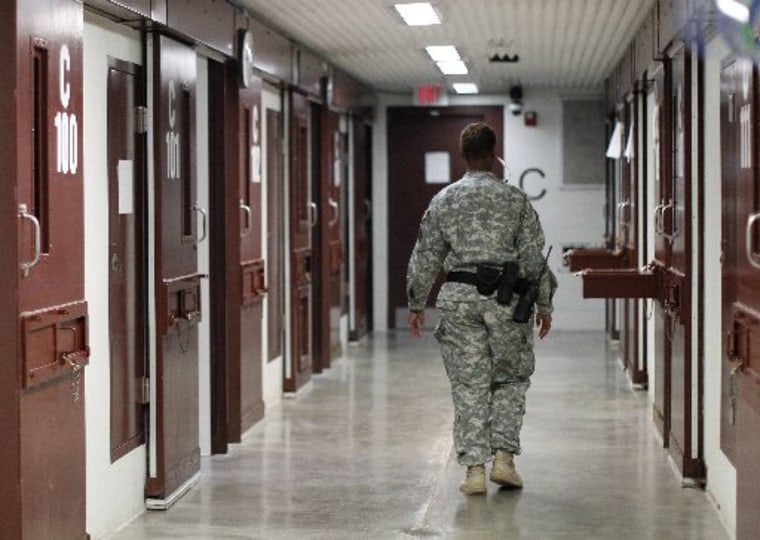A United Nations office added its voice to calls to close the prison at Guantanamo Bay on Friday, a move that could place even more pressure on the Obama administration to free the 86 men currently awaiting release from the notorious prison.
Navi Pillay, the UN high commissioner for human rights, issued a statement that strongly condemned the continued detention of men who had been cleared for release, calling it "the most flagrant breach of individual rights" and "a clear breach of international law." The statement also requested that the U.S. allow human rights experts to meet with detainees.
The commissioner's words could help spur efforts to find a way to let the prisoners go, but any plan to do so will still face a number of hurdles. A statement made in late March by a White House spokesman pointed to congressional opposition to any plan to close Guantanamo, and the administration has repeatedly cited the specter of security concerns as a major reason Yemeni citizens--who make up the vast majority of those in a state of limbo--cannot return home.
April 5 marks the two-month anniversary of the current hunger strike, which is now officially acknowledged to include at least 40 men, 11 of whom are being force fed through tubes. The strike began as a protest against what the prisoners perceived as inappropriate searches of their Korans, but it is now focused more on drawing attention to the uncertainty and anxiety they face. Pillay showed sympathy for the prisoners' plight, saying, "it is scarcely surprising that people’s frustrations boil over and they resort to such desperate measures."
